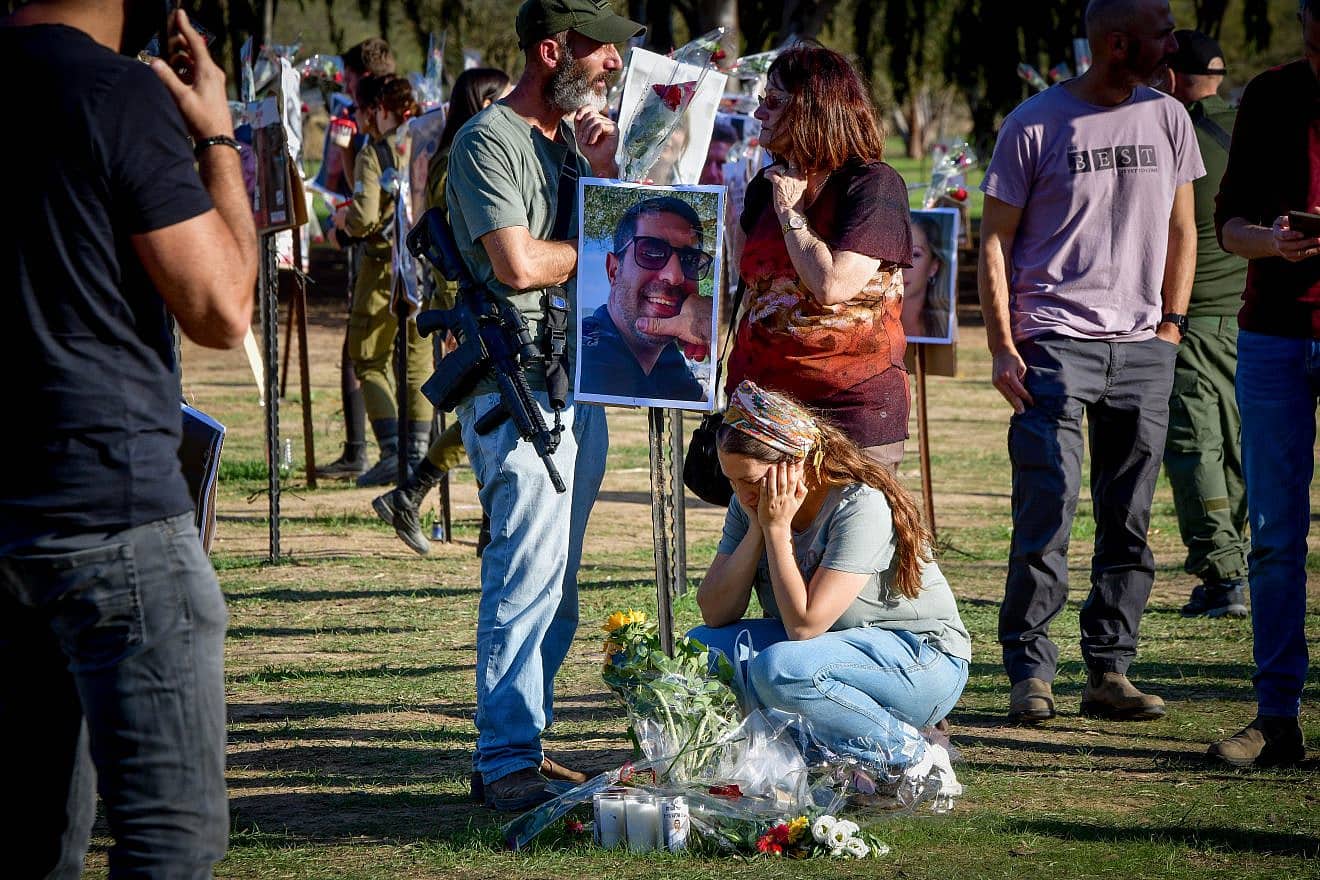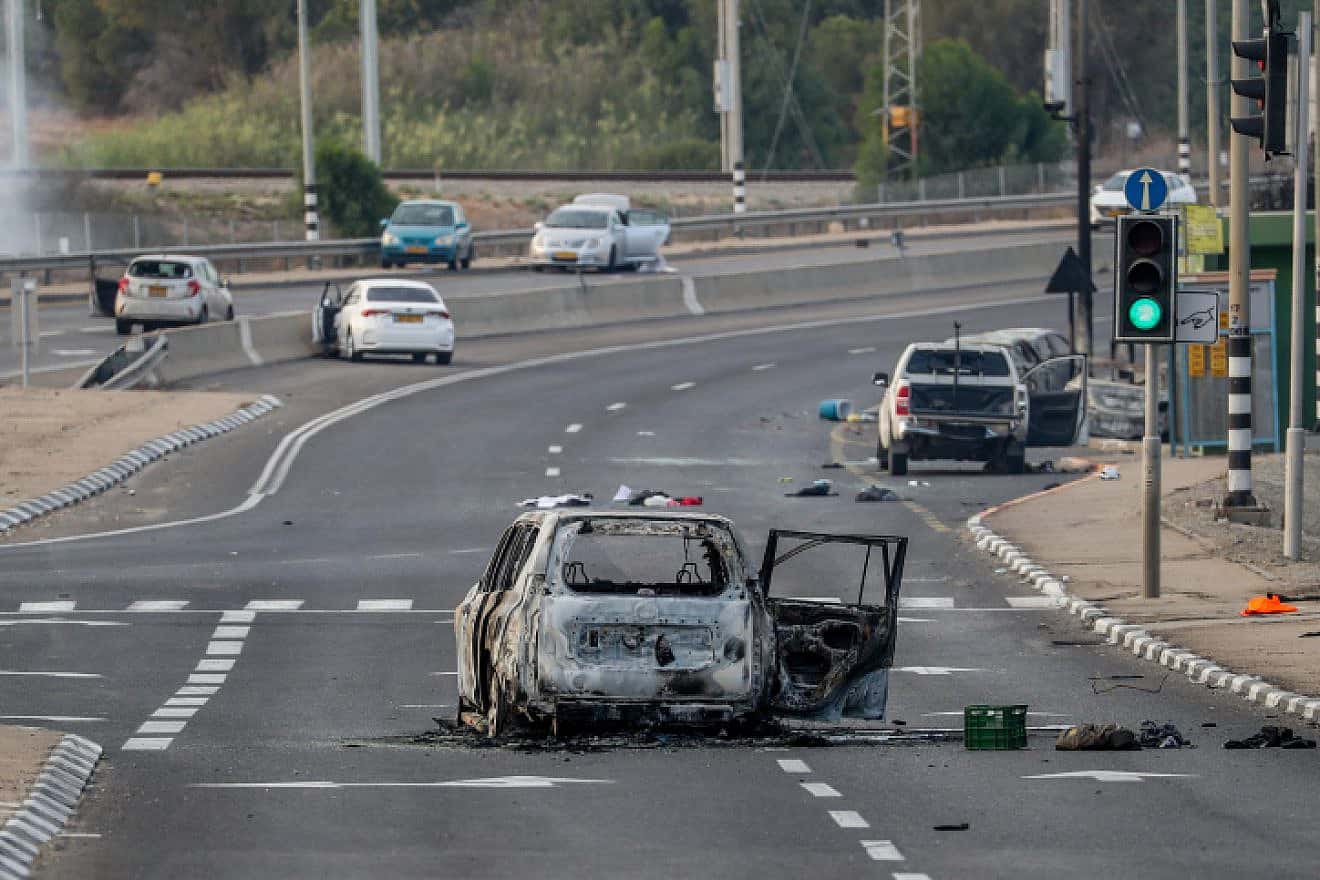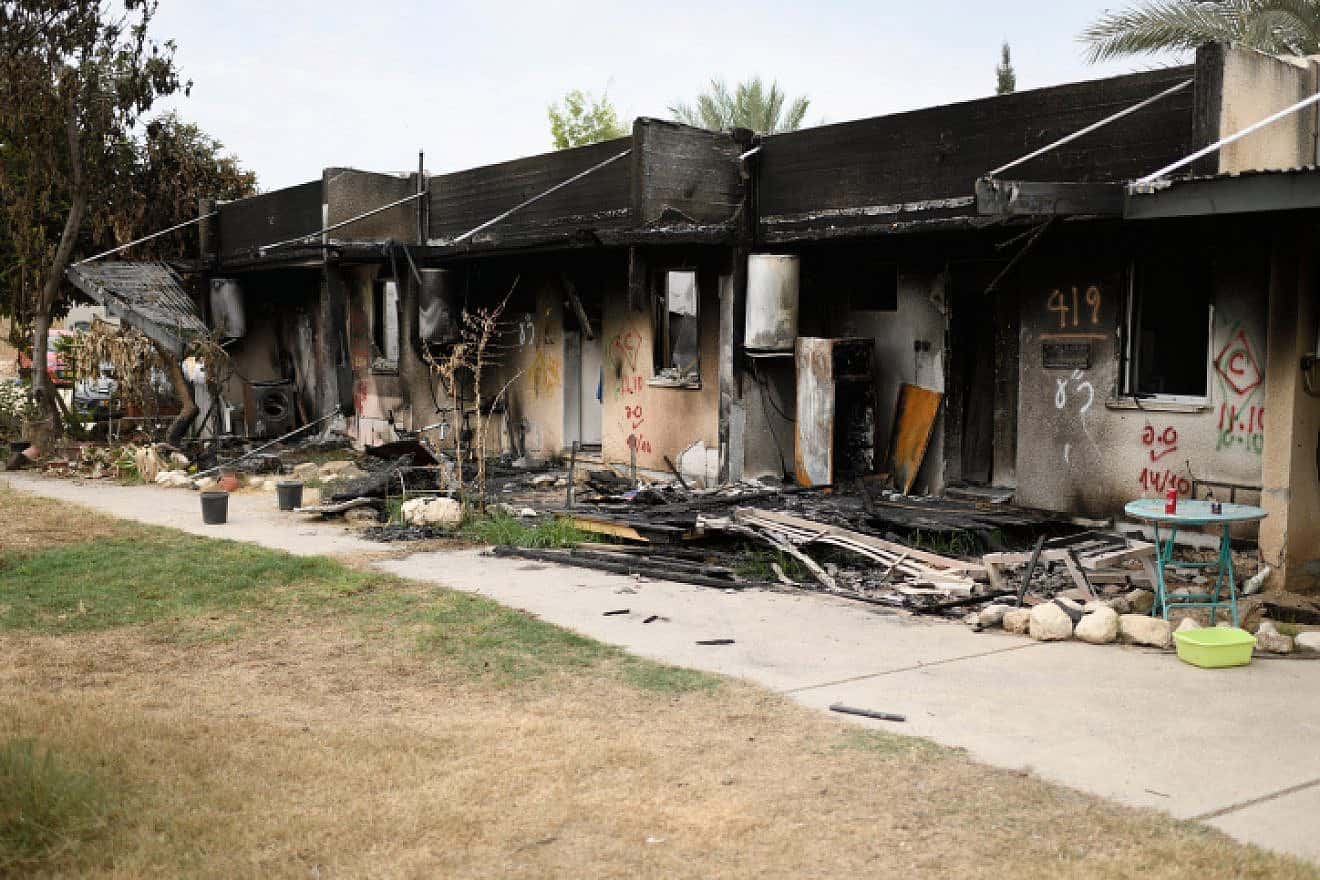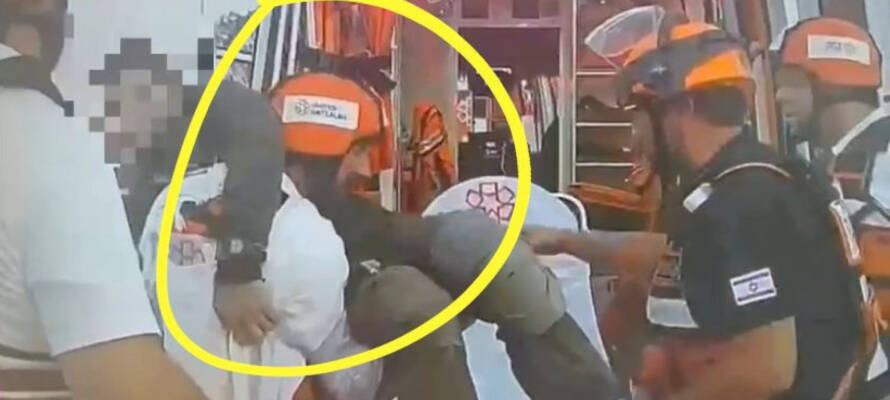Over the course of the day, Rott saved some 50 people.
By Amelie Botbol, JNS
On Oct. 7, 2023, Eli Rott was spending Simchat Torah at his in-laws’ with his wife and two children when rocket-alert sirens blared across Jerusalem.
Almost simultaneously, at around 8:05 a.m. he received a call from United Hatzalah, for which he has volunteered for five years as a first responder, informing him that he needed to head south towards the Gaza border.
“I had a bit of an argument with my wife. She didn’t want to let me go at first. She was terrified. Not that we even knew at the time how severe the attack was,” Rott, a haredi, or ultra-Orthodox Jew, told JNS.
His community understands and respects his duty to save lives, he said.
“If a pregnant woman needs to give birth on Shabbat or an elderly person doesn’t wake up, someone must assist them. My phone might ring in synagogue during the prayers and everyone is okay with it,” he explained.
En route to Sderot, Rott was flagged down by a car that had been commandeered by soldiers from the site of the Supernova music festival at Kibbutz Re’im, where Hamas terrorists had killed 360 people.
The vehicle’s driver had been killed and two other passengers were wounded and in need of medical assistance.

People visit the site of the Supernova music festival massacre near Kibbutz Re’im, Nov. 30, 2023. Photo by Avshalom Sassoni/Flash90.
“We got the two injured revelers into the ambulance and started making our way to the nearest hospital,” said Rott.
“On the way, they began describing what they had gone through. I thought they were tripping on hard drugs; it didn’t seem real.”
By then, information and clips of the atrocities began circulating on social media.
But Rott, who is Shabbat-observant and thus only uses his phone for emergency calls on the Jewish day of rest, did not yet know the extent of the carnage.
“When I arrived at the hospital, I saw chaos—blood on the floor, parents looking for their children. They would open the back doors of the ambulance to check if their kid was inside,” he said.
After dropping off the wounded, Rott headed back out, passing the entrance to Sderot, where he encountered a bomb shelter filled with dead people.

A highway near Sderot after Hamas terrorists killed Israelis en masse on Oct. 7, 2023. Photo by Jamal Awad/Flash90.
“I usually would stop to recover the bodies, but there was no time. Otherwise, we would not have been able to rescue the living,” said Rott.
In Ofakim, the police station had been transformed into a makeshift hospital with doctors and paramedics treating victims from across the region.
“I provided first aid to those who needed it and helped evacuate the wounded to hospital in available cars,” said Rott.
Rott went back and forth between Ofakim and hospitals in southern Israel six or seven times, transporting four wounded each trip.
“We took the victims to Ashkelon, Ashdod and Beersheba, switching it up so as not to overwhelm the hospitals,” he said.
In the afternoon, he was dispatched to Kibbutz Kfar Aza, where more than 60 residents had been killed by Hamas and at least 18 others kidnapped.

The aftermath of Hamas’s Oct. 7 attack on Kibbutz Kfar Aza, Oct. 27, 2023. Photo by Gili Yaari/Flash90.
“When we arrived it was scary, with much shooting and many rockets targeting the kibbutz. We only had a few seconds to find shelter, but there was none, we were on the street,” said Rott.
“The wounded we rescued there were mostly from elite military units because they were the first to arrive to fight.”
Over the course of the day, Rott saved some 50 people.
“It is written in the Torah that everything that can be done should be done to save lives. On Oct. 7, there was no Shabbat, no kiddush or havdalah. I did not pray, because this is what was needed. It was my mitzvah,” he said.
“On Oct. 7, we needed everyone,” he said, adding that that hadn’t changed since. “We need to find a way to talk to each other in order to find a solution. Unity is the most important” thing, he added.
On Friday, Rott, a talented athlete and the first haredi Ninja Israel finalist, participated in the Jerusalem Marathon.
“I ran in the Old City, looking at the holy places and thinking of all the wars we fought for these to be ours. We will not forget all those who fell in battle or the hostages, who we will bring back and run with next year,” he said.



